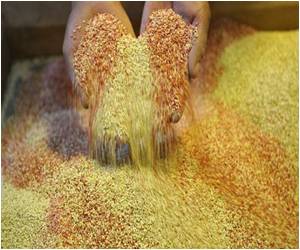Researchers have demonstrated that screening of genetically susceptible infants can lead to the diagnosis of celiac disease at a very early age.

Celiac disease is an autoimmune disease that damages the small intestine and interferes with absorption of nutrients from food. It can sometimes develop silently, leading to long-term medical complications if left untreated. People who have celiac disease cannot tolerate gluten, a protein in wheat, rye, and barley. Gluten is found mainly in foods but may also be found in everyday products such as medicines, vitamins, and lip balms.
The study is published in the July 3 issue of The New England Journal of Medicine. The research was funded by the NIH, the Juvenile Diabetes Research Foundation and Centers for Disease Control and Prevention.
Edwin Liu, MD, associate professor of pediatrics at the University of Colorado School of Medicine and lead author of the study, said the findings are significant because it will help determine when screening should begin in at-risk children. In addition, it will allow the group to explore factors that may be causing Swedish children to develop celiac disease at a higher rate than other countries.
"The findings in this report set the stage for the study of complex relationships between genetic, environmental and gestational factors that may play a role in the development of celiac disease in early childhood," said Liu, who is the Taplin Endowed Chair for Celiac Disease and director of the Colorado Center for Celiac Disease at Children's Hospital Colorado.
Marian Rewers, MD, PhD, the principal investigator of TEDDY, and the late George Eisenbarth, MD, PhD, both from the Barbara Davis Center for Childhood Diabetes, are co-authors of the study. The senior author and leader of the Celiac Disease Committee within TEDDY is Daniel Agardh, MD, PhD, from Lund University in Sweden. Other contributors to the study are from the University of South Florida, the Pacific Northwest Diabetes Research Institute in Seattle, Ludwig-Maximilians-University in Germany, the University of Bristol in the United Kingdom, Dresden University in Germany, the University of Turku in Finland and members of the TEDDY Study Group.
Advertisement
Source-Eurekalert









